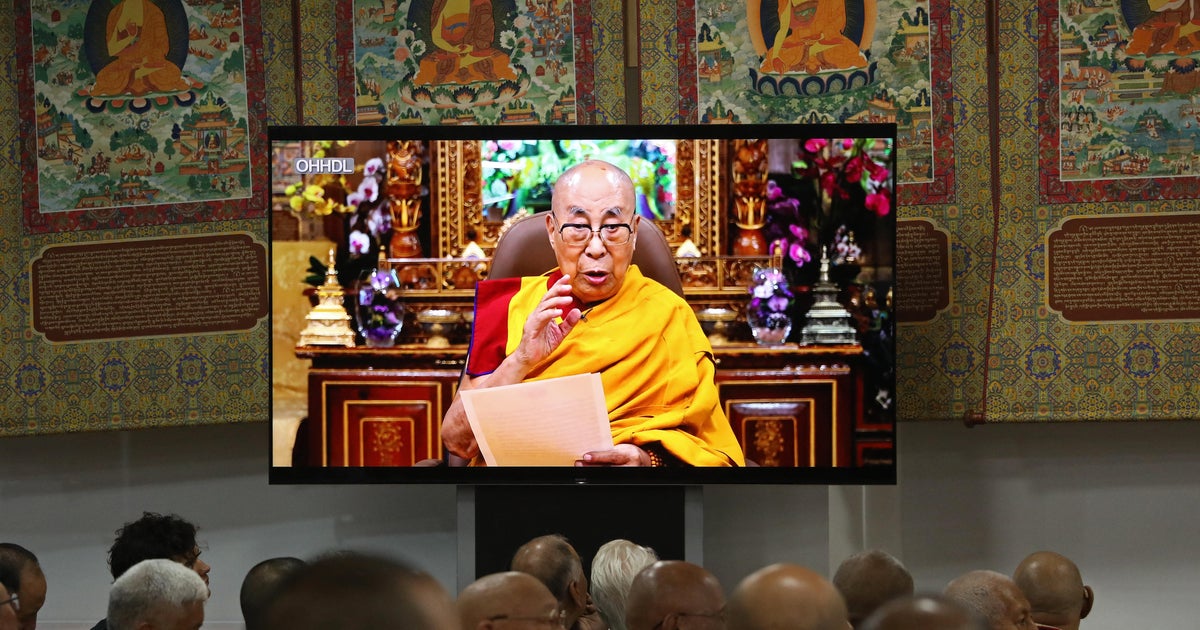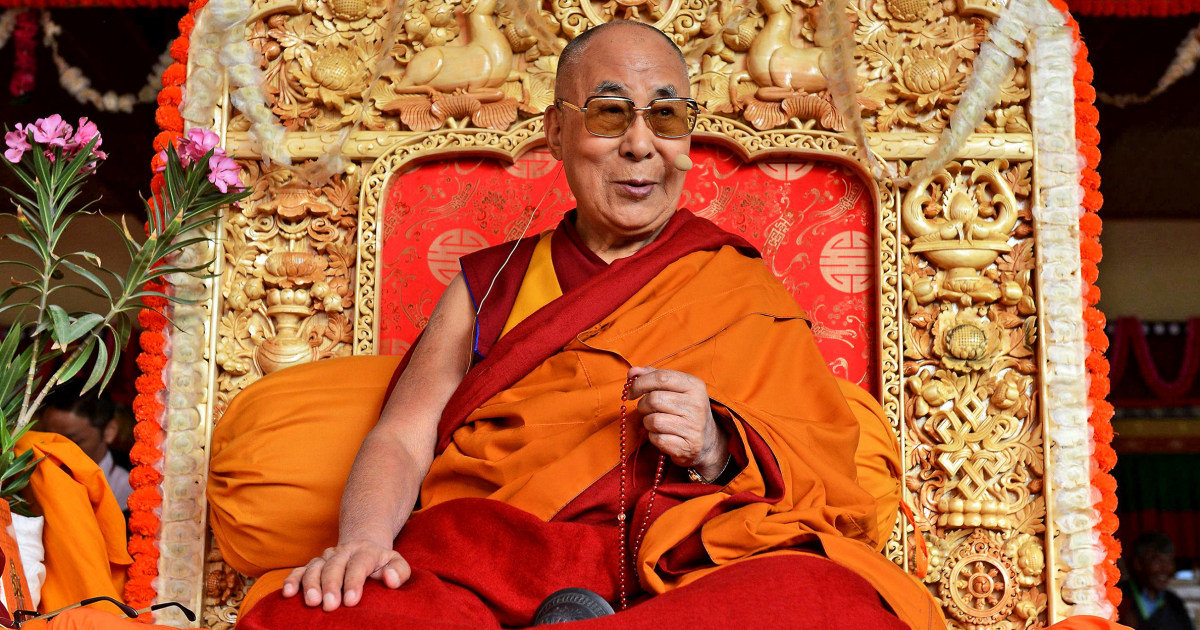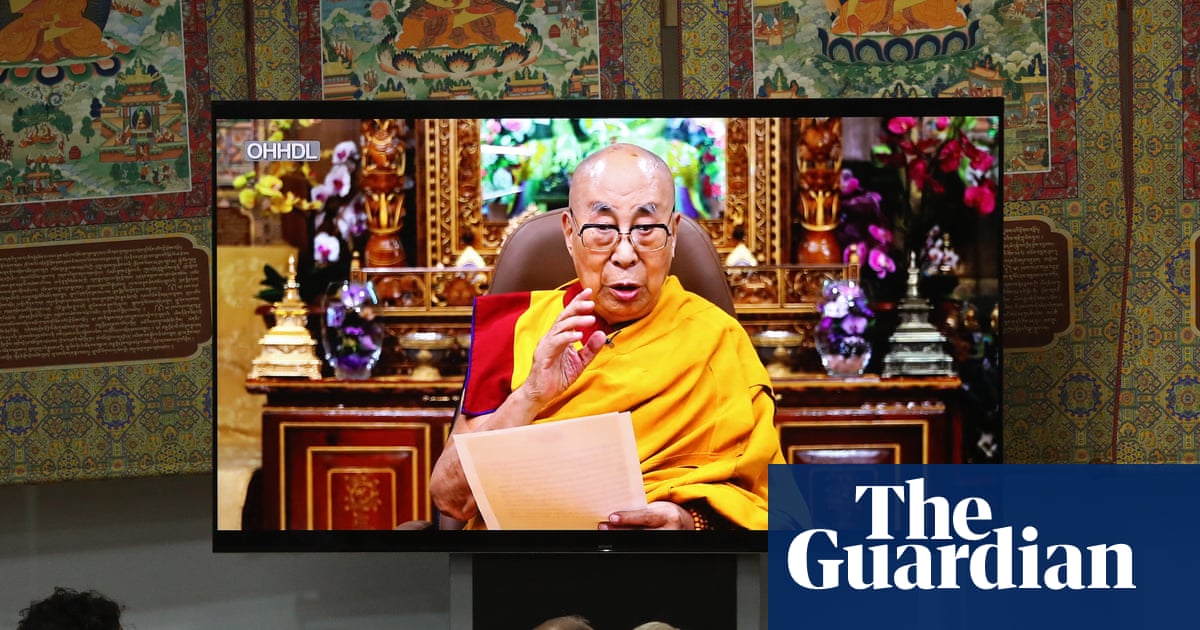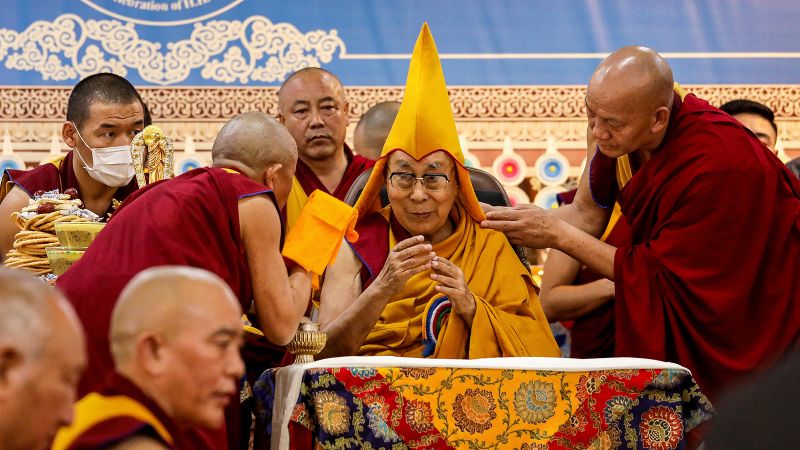Dalai Lama Confirms Succession Plans Amidst Political Tensions with China
The Dalai Lama outlines his succession plan, emphasizing traditional practices and rejecting Chinese interference, ensuring the future of Tibetan Buddhism.
Overview
- The Dalai Lama will select his successor according to traditional Buddhist practices, emphasizing the continuation of Tibetan Buddhism.
- He asserts that the next Dalai Lama will be recognized outside of China, challenging Beijing's authority over the process.
- Concerns arise over potential rival claimants to the title from factions loyal to China and the current Dalai Lama.
- The search for the reincarnation will commence only after the Dalai Lama's death, despite fears of interference from China.
- This succession plan is politically significant for Tibetans, reinforcing their identity and opposition to Chinese control over Tibet.
Content generated by AI—learn more or report issue.

Get both sides in 5 minutes with our daily newsletter.
Analysis
Center-leaning sources frame the Dalai Lama's statements as pivotal in the context of Tibetan identity and autonomy, emphasizing the tension with China. They highlight the significance of traditional practices in recognizing his successor while implicitly supporting Tibetan perspectives against Chinese authority, reflecting a nuanced bias towards Tibetan self-determination.
Articles (12)
Center (5)
FAQ
The Dalai Lama plans to select his successor through traditional Tibetan Buddhist practices involving senior monastic disciples who identify spiritual signs and visions to locate the reincarnation.
The Dalai Lama rejects China's claim because Tibetan Buddhists insist that the recognition of the next Dalai Lama must be done according to traditional religious customs, independently of Chinese political interference, to preserve Tibetan Buddhism's authenticity and identity.
There is concern that factions loyal to China may appoint a rival Dalai Lama, potentially undermining the legitimacy of the true successor and creating political and religious conflict within Tibetan Buddhism.
The search for the next Dalai Lama will begin only after the current Dalai Lama's death, following traditional procedures despite worries about possible interference from China.
The succession plan reinforces Tibetan identity and resistance to Chinese control over Tibet by ensuring that Tibetan Buddhists retain authority over the recognition of the Dalai Lama, a central figure in their religious and cultural heritage.
History
- 1d

 9 articles
9 articles










